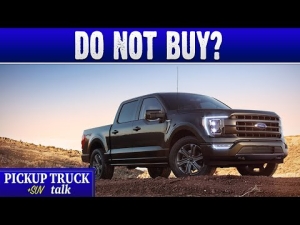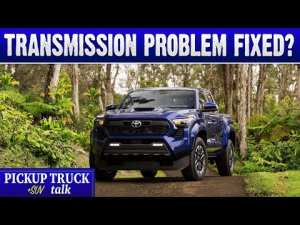Consumer Reports Says These Toyota and Tesla Models Have Similar Problems
Although Toyota does have quite a few hybrid options in its lineup, it’s not exactly in direct competition with EV manufacturer Tesla. Toyota has made big promises in terms of electrifying its lineup. Plus, there are certainly buyers deciding between a Tesla Model 3 and a Toyota Prius or a Model Y and Sienna minivan. Still, the comparisons aren’t really apples to apples and some models had problems in Consumer Reports testing.
That said, Consumer Reports does have some interesting data to share. There are some issues that both the Tesla Model 3 and the new Toyota Sienna (which comes only as a hybrid) have in common. Each model showed braking issues during Consumer Reports testing. One model was too touchy, while the other took a questionably long distance to come to a complete stop.
The 2021 Toyota Sienna is obviously in its first model year after a redesign

According to Consumer Reports, the all-new Toyota Sienna has some “early build teething issues.” That means it’s a baby, fresh off a redesign and it’s still figuring itself out a little bit. Sometimes, models in their first year of a new generation receive lower marks for reliability because it’s necessary for a model to “work out the kinks” and come into its own.
When Consumer Reports tested the 2021 Toyota Sienna, there were some problems with this hybrid minivan’s braking. In the reports, it’s said that Consumer Reports “found much to like about Toyota’s all-new hybrid minivan.” While the van has a smooth and accommodating ride quality, roomy and “extremely functional” cabin, CR had issues with the feel from the brake-pedal.
The test proved the brakes on the Toyota Sienna to be very touchy. In fact, CR used the term “grabby.” These overly sensitive hybrid brakes on the 2021 Sienna make it difficult for drivers to slow or stop smoothly. In the words of Consumer Reports, the brakes “made coming to a smooth stop nearly impossible.” While overall the new Sienna is appealing, it might prove worth it to wait until some of the “teething issues” have been addressed in upcoming model years.
The Tesla Model 3 had braking problems too

In Consumer Reports testing of the (at-the-time) all-new 2018 Tesla Model 3 had overly long stopping distances. In addition, CR testing found these stopping distances to be largely inconsistent. The 2018 Tesla Model 3 EV took 152 feet to stop from 60 mph, on average.
Consumer Reports says this is 7 feet longer than the Ford F-150 and 25 feet longer than a Tesla Model X SUV performed in this particular test. Consumer Reports notified Tesla of the braking problems. At that point, the EV manufacturer issued an “over-the-air” anti-lock braking system (ABS) software update for the Tesla Model 3. Following this software update, the stopping distance improved by 20 feet.
Consumer Reports also reached out to Toyota about the “grabby” Sienna brakes
Virtually the entire CR testing team agreed that the Sienna’s brakes were too sensitive. They drive it and agreed the problem negatively impacted the driving experience. Then, Consumer Reports reached out to Toyota. It found that the Japanese automaker already issued a Technical Service Bulletin (TSB) which covers the braking issue.
Anyone who owns a 2021 Toyota Sienna can take the minivan to their local dealer. There, the necessary repairs will be made free of charge. According to CR, the dealer will have to recalibrate the ABS module. The testing crew reported that following recalibration the 2021 Toyota Sienna’s brakes “improved markedly,” giving the driving experience a “much more natural feel, particularly during low-speed driving.”
Overall, the Tesla Model 3 and the Toyota Sienna are both very different vehicles with almost nothing in common. However, they each had initial quality issues that had to do with braking problems. Thankfully, after Consumer Reports tested the vehicles, each manufacturer issued the necessary repairs.
RELATED: There’s Only 1 Reason You Shouldn’t Buy the 2022 Toyota Highlander
The post Consumer Reports Says These Toyota and Tesla Models Have Similar Problems appeared first on MotorBiscuit.







